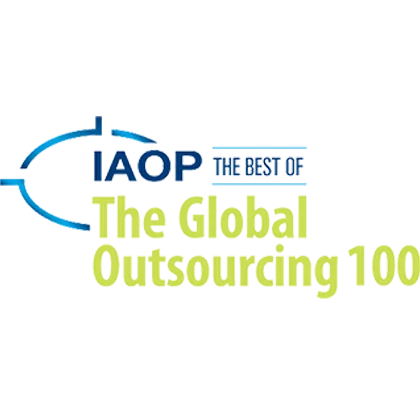Choosing the right software development consulting services can significantly impact your business goals. Clear strategies, efficient workflows, and tailored solutions rely on thoughtful planning and expertise. Businesses that prioritize structured guidance often benefit from reduced project risks, optimized resources, and higher returns on investment.
Understanding the specific needs of your company is the first step. A reliable partner offering business analysis and consulting services identifies challenges, setting measurable goals and streamlining processes. They ensure projects align with business objectives while improving overall efficiency. Companies gain clarity on which solutions fit their operations, budgets, and timelines.
Experience, domain expertise, and proven methodologies are essential factors when making this choice. Consulting services tailored to your organization provide actionable insights, reduce unnecessary costs, and prevent project delays. Beyond technical expertise, effective collaboration plays a critical role in achieving the desired outcomes.
Selecting the right consulting partner means focusing on experience, relevant case studies, and their ability to adapt to your business model. Thoughtful decisions at the consulting stage often translate into long-term success and sustainable growth.
The Ins and Outs of Software Development Consulting

Software development consulting helps you identify gaps, define requirements, and build tailored strategies to meet specific needs. You gain actionable guidance for your projects by choosing the right consulting partner. Clear project objectives, effective resource management, and technical expertise ensure measurable results. Unlike software development outsourcing, consulting focuses on aligning technology with your business goals, ensuring each step delivers value. Reliable consulting services often address everything from project planning to solution validation.
What Software Consulting Services Include
Software consulting services cover multiple aspects of project success. You can expect support in areas like requirement analysis, solution architecture design, technology evaluation, and project roadmapping. Experts assist in identifying existing inefficiencies while proposing scalable improvements tailored to your operations.
Essential components of software consulting comprise:
Beyond planning, reliable consultants ensure smooth communication across stakeholders. Regular assessments, transparent reporting, and goal-driven deliverables allow you to track progress effectively. Each phase focuses on improving workflows while reducing unnecessary complexities. The end result combines practicality with precision. Software consulting does not stop at suggestions but ensures tailored implementation, helping you build robust, future-proof solutions.
Why Businesses Need Custom Software Development Consulting
Custom software development consulting delivers solutions built specifically for your processes and goals. Unlike off-the-shelf options, custom approaches focus on performance, adaptability, and scalability within your operations.
A strong solution architecture forms the foundation for success. By mapping out technical requirements early, consultants minimize risks and prevent costly reworks later. For example, businesses that automate manual workflows often experience faster decision-making and improved resource utilization.
Consulting also addresses unique challenges that pre-packaged software cannot resolve. Whether you require legacy system integration, performance optimization, or scalable infrastructure, tailored strategies save time and resources.
Collaboration drives results. Consultants analyze your needs, recommend the right technology stack, and design an implementation plan that aligns with your goals. By implementing these solutions, businesses often gain improved workflows, stronger security, and measurable ROI.
Choosing custom development consulting ensures every recommendation reflects your company’s operations. Proven expertise helps you adapt technology for real growth, empowering your team to focus on what matters most.
Crucial Factors for Evaluating Software Consulting Services
Selecting the right software consulting services requires evaluating key aspects influencing project success. A focus on expertise, communication, and alignment with your goals helps streamline operations and reduce risks.
Here are a couple of factors to take into account:
- Technical expertise. Ensure the provider has proven skills in custom software development and consulting.
- Transparent communication. Clear updates and reporting allow you to track progress and resolve issues early.
- Industry experience. Knowledge of your field ensures tailored solutions that fit your workflows.
- Scalability. The consulting partner must deliver solutions that are adaptable to future growth and requirements.
Carefully assessing these elements ensures you choose a provider capable of delivering value-driven results.
Expertise in Custom Software Development and Consulting
The success of any software project depends on a consulting partner’s ability to deliver customized solutions. Businesses often deal with unique challenges that generic software cannot resolve. A consultant with strong expertise in custom software development and consulting ensures every solution aligns with your operations, goals, and future needs.
Let's mention some areas of expertise to evaluate:
- Solution design. Consultants should create flexible and scalable software architectures that support business growth.
- Technical capabilities. Assess the team’s experience with modern programming languages, frameworks, and tools.
- Industry knowledge. Providers with experience in your sector are better equipped to address industry-specific challenges.
- Integration proficiency. Seamless integration with existing systems avoids disruptions while improving workflows.
In addition to technical know-how, expertise in analyzing and resolving inefficiencies is essential. For example, consultants who specialize in streamlining manual processes often deliver automation solutions that save time and resources.
Choosing a partner with a proven track record in custom solutions ensures better outcomes, fewer delays, and long-term value.
Communication and Transparency in Project Management
Strong communication and transparency are essential for maintaining project alignment, reducing risks, and meeting deadlines. Software projects often face delays or mismanaged resources without transparent reporting and collaborative workflows.
So, what are the effective communication elements?
- Regular updates. Progress reports and milestone tracking keep you informed throughout each project phase.
- Open feedback loops. Collaborative discussions allow teams to resolve issues and refine strategies promptly.
- Transparent documentation. Clear records of requirements, decisions, and changes help avoid misunderstandings.
- Defined workflows. Structured processes ensure every team member understands their role and responsibilities.
For example, businesses that receive weekly updates can quickly address concerns or adjust priorities without losing momentum. Transparent reporting ensures all stakeholders remain aligned with project goals, which helps avoid costly miscommunications.
Consulting partners who prioritize clear communication build stronger client relationships and deliver more predictable results. Aligning teams, maintaining transparency, and encouraging ongoing collaboration ultimately leads to better project outcomes.
Consult with software development and solutions integration professionals. Let’s connect!
How to Choose the Right Approach for Your Software Needs?
Identifying the most effective approach to meet your software requirements starts with understanding your goals, challenges, and long-term needs. Companies often face a choice between custom solutions and ready-made software. Evaluating these options carefully helps ensure the right fit for your operations. The decision should align with your budget, scalability, and desired functionality.
Custom Software Development Consulting vs. Off-the-Shelf Solutions
Choosing between custom software and off-the-shelf solutions requires comparing their benefits and limitations. The table below highlights key factors to help you decide:
| Criteria | Custom Software Development | Off-the-Shelf Solutions |
| Personalization | Designed to match your exact processes and needs. | Offers standard features with limited flexibility. |
| Scalability | Adapts and grows with your business requirements. | Requires upgrades or additional purchases for scaling. |
| Integration | Seamlessly integrates with your existing systems. | Integration options may be limited or costly. |
| Implementation Time | Longer development process but tailored to your goals. | Faster deployment with pre-built features. |
| Upfront Cost | Higher initial investment but eliminates recurring fees. | Lower initial cost but may include licensing fees. |
| Long-Term Value | Provides long-term efficiency and savings. | May require expensive workarounds or customizations. |
Custom software development consulting offers tailored, scalable solutions for businesses with unique workflows or long-term goals. Off-the-shelf options, on the other hand, can work for those needing quick implementation and basic functionality. Your decision should align with the specific needs and priorities of your operations.
Assessing Your Requirements for Software Consulting Services
Understanding your software needs is essential when choosing consulting services. A clear assessment of challenges, goals, and processes ensures the right partner delivers solutions that align with your expectations.
For example, businesses aiming to automate manual processes often prioritize workflow efficiency and integration capabilities. Those focused on growth look for scalable systems that adapt to increasing demands.
Carefully assessing your needs provides clarity and direction for software consulting services. You ensure a solution that delivers measurable results and long-term benefits by aligning requirements with business objectives.
Benefits of Custom Software Development and Consulting
Custom software development and consulting deliver solutions that align directly with your goals, processes, and challenges. Unlike generic systems, they adapt to your requirements, ensuring greater efficiency and measurable outcomes. Businesses benefit from tailored functionality, seamless IT consulting system integration, and scalable solutions designed to support long-term growth while maximizing ROI.
Tailored Solutions for Unique Business Goals
Every business has unique processes, challenges, and objectives. Custom software development and consulting focus on delivering solutions that address specific needs rather than relying on generic functionalities.
Some of the benefits include:

Alignment with business goals. Software is built to achieve your priorities, improve efficiency, automate workflows, or enhance decision-making.

IT consulting system integration. Tailored solutions ensure compatibility with existing tools, creating seamless operations without workflow disruptions.

Optimized performance. Custom systems are designed to handle your exact data volumes, user requirements, and operational complexities.

Targeted problem-solving. Consultants identify inefficiencies and design solutions that resolve specific challenges, driving measurable improvements.
For example, companies that rely on legacy systems often face compatibility issues with new tools. Custom solutions overcome these barriers by integrating seamlessly into your IT ecosystem while delivering enhanced functionality. Businesses in highly specialized industries, such as healthcare or logistics, also benefit from software tailored to their workflows, avoiding unnecessary features.
Tailored solutions ensure that every aspect of the software contributes to achieving your unique business goals. Combining expert consulting with custom development gives you a solution that improves productivity, reduces costs, and delivers tangible results.
Long-Term Value and Scalability of Custom Software
Custom software delivers value beyond immediate implementation. Unlike off-the-shelf solutions, it is built to evolve with your business needs, ensuring consistent performance and ROI over time.
The essential advantages of long-term value include:

Scalable architecture. Systems grow with your business, accommodating increasing users, data volumes, or new functionalities without requiring complete overhauls.

Reduced operational costs. Custom solutions eliminate recurring licensing fees and unnecessary features, saving costs over time.

Improved efficiency. Automation of manual processes reduces labor costs and minimizes errors, boosting productivity.

Future-proof investments. Custom systems can integrate new technologies or features as business needs change.
For example, businesses expanding their operations often face limitations with pre-packaged software that cannot handle growth. Custom software provides scalable solutions that adapt seamlessly, whether you’re adding more users or implementing new processes.
Long-term value also stems from reduced downtime. Systems designed specifically for your needs ensure fewer disruptions and more excellent reliability. By focusing on scalability and adaptability, custom software solutions become strategic investments that empower you to achieve sustained growth while maintaining operational efficiency.
Challenges in Software Development Consulting (and How to Overcome Them)
Challenges in software development consulting often disrupt timelines, budgets, and project success. Issues like scope creep, stakeholder misalignment, and unclear expectations can derail progress. Overcoming these obstacles requires careful planning, transparent communication, and consistent alignment of goals. Addressing challenges early ensures projects stay on track while delivering measurable results.
Scope Creep with Proper Planning
Scope creep occurs when project requirements expand beyond the original plan, causing delays, increased costs, and resource mismanagement. It often arises from unclear objectives, evolving priorities, or incomplete initial planning. Managing this challenge requires clearly defined goals and structured processes from the outset. Consultants work closely with stakeholders to identify core requirements, establish realistic timelines, and set boundaries to avoid unnecessary changes.
A detailed project roadmap helps anticipate potential adjustments while keeping the focus on essential deliverables. Regular progress reviews and clear documentation ensure that every modification is assessed for its impact on time and cost. When unexpected changes arise, consultants address them through structured approval processes that align with overall project objectives.
By prioritizing proper planning and open communication, businesses can minimize scope creep while maintaining project momentum. Consultants also provide insights to refine priorities, ensuring resources are allocated effectively. When stakeholders and teams collaborate closely, projects remain focused on delivering value without getting sidetracked by uncontrolled changes.
Alignment Between Stakeholders and Consultants
Misalignment between stakeholders and consultants often leads to confusion, miscommunication, and conflicting priorities during project execution. When business leaders, end-users, and technical teams lack a unified understanding of project goals, outcomes can fall short of expectations. Achieving alignment requires consistent collaboration, transparent communication, and shared ownership of project objectives.
Precise requirements serve as the foundation for strong alignment. Consultants facilitate stakeholder discussions to define priorities, expectations, and success metrics before development begins. Regular check-ins, updates, and feedback loops ensure all parties remain on the same page throughout the project lifecycle. Consultants also bridge the gap between technical and non-technical teams by simplifying complex concepts, enabling better decision-making.
Effective alignment depends on mutual trust and understanding. Stakeholders must actively participate in reviews and provide timely feedback to keep projects on track. In turn, consultants deliver regular updates highlighting progress, challenges, and solutions. Maintaining this collaboration ensures that the project evolves as expected and meets technical and business requirements. When alignment is prioritized, businesses achieve results that align with their long-term goals while reducing delays and inefficiencies.
Final Considerations When Selecting Software Consulting Services
Selecting the right software consulting services involves more than technical expertise. Cost, measurable returns, and proven experience often determine whether a partnership meets your expectations. Carefully reviewing budgets, past results, and client feedback allows you to make informed decisions. Balancing value and performance helps you choose a consulting partner capable of delivering successful outcomes.
Evaluating Cost Versus Return on Investment
Cost is often a critical factor when selecting software consulting services. But focusing solely on the price can undermine long-term benefits. Assessing return on investment (ROI) alongside project costs helps you determine the actual value a consulting partner brings to your business.
Understanding the long-term impact of software consulting begins with identifying areas of improvement, such as productivity gains, reduced operational inefficiencies, and cost savings. For example, a business that automates manual workflows may achieve faster output while reducing labor costs. While upfront expenses for custom solutions might seem high, improved processes and scalability often deliver measurable returns over time.
Additionally, evaluating hidden costs — such as maintenance fees, system downtime, or limited scalability — provides a more realistic financial comparison. Transparent discussions about timelines, budgets, and deliverables give a clearer picture of what to expect. Businesses that prioritize ROI over cost alone often experience better results, achieving solutions that align with long-term goals while avoiding incomplete or poorly executed projects.
By weighing cost against tangible outcomes, you can select consulting services that deliver meaningful value, not just immediate savings.
Checking Portfolios and Client Testimonials
Evaluating a consulting partner’s experience is essential for understanding their capabilities. Portfolios and client testimonials offer real examples of successful projects and provide insights into how consultants have handled similar challenges. A well-documented portfolio demonstrates expertise across industries, project sizes, and complexities, helping you identify whether the team is suited to your needs.
Case studies within portfolios highlight practical solutions delivered to past clients. For instance, companies looking for system integration or performance optimization can assess examples that showcase measurable results, such as improved workflows or reduced downtime. Examining these details gives you confidence in a partner’s ability to meet your expectations.
Client testimonials add another layer of credibility. Feedback from businesses that faced similar challenges reveals the consulting team’s approach to communication, problem-solving, and delivering results. Consistent positive reviews about professionalism, expertise, and outcomes signal reliability and commitment to meeting project goals.
Requesting references allows you to dig deeper. Speaking directly with previous clients clarifies how challenges were managed, deadlines were met, and objectives were achieved. A strong track record, backed by proven results and client feedback, is often a key indicator of a consulting partner’s ability to deliver value for your business.
Why Program-Ace Is Your Trusted Partner for Software Consulting Services
Program-Ace is an innovative solutions integrator and software development consulting company with a proven track record of delivering value-driven software consulting services. By combining technical expertise, deep industry knowledge, and a client-first approach, we help businesses achieve measurable outcomes. Our team aligns technology with your goals, addressing challenges through tailored strategies that optimize processes and drive growth.
From in-depth business analysis to scalable solution implementation, Program-Ace ensures every stage of your project delivers meaningful results. With a strong portfolio of successful partnerships across industries, we provide actionable insights and future-ready solutions that adapt to evolving business needs.
When you partner with us, you gain more than consulting — you gain a reliable ally committed to helping you succeed. Ready to explore solutions tailored to your business? Contact us now to discuss your software consulting needs and take the next step toward achieving your goals.





















